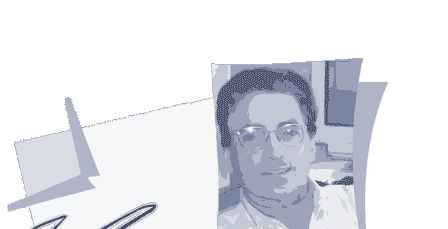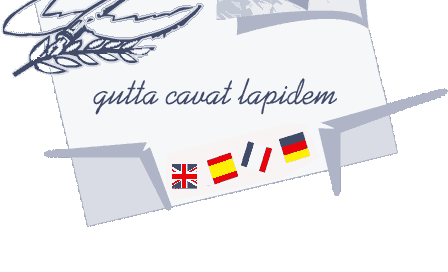INTRODUCTION TO FILM "KRIESVERBRECHEN
IM WESTEN" (WAR CRIMES ON THE WESTERN FRONT" NACH DEN
AKTEN DER WEHRMACHT-UNTERSUCHUNGSSTELLE FÜR VERLETZUNGEN DES
VÖLKERRECHTS
BROADCAST ON ARD/WDR GERMAN CHANNEL 1 ON 18 MARCH 1983 AT 9 P.M.
ALFRED DE ZAYAS STANDING BEFORE THE BUILDING OF THE GERMAN MILITARY
ARCHIVES
"Behind me you see the Federal Military Archives at Freibung
in West Germany. Thousands of hitherto untouched files are stored
here awaiting discovery by eager researchers. Among these files
are many war diaries and the records of the Legal Division of the
Wehrmacht, including the 226 volumes of the German Army Bureau for
War Crimes, the so-called Wehrmacht-Untersuchungsstelle für
Verletzungen des Völkerrechts.
226 big volumes, each 100 to 500 pages. American troops captured
these files in April 1945 at Torgau on the River Elbe and sent them
to Washington, where they were classified and placed out of reach.
These files contain primarily German investigations of reported
instances of Allied war crimes.It should be noted that this record
group comprises but a fraction of the original documentation and
internal files of the Bureau, which was set up on 4 September 1939
and functioned through April 1945.
One question immediately arises: Isn't this pile of documents nothing
more than Goebbels' propaganda material ? Indeed, my Dutch colleague
Dr. Walter Rabus and myself approached our assignment with considerable
skepsis, but had to conclude that this bureau of investigation performed
its tasks responsibly and even attempted to investigate reports
of German war crimes. Unfortunately, all these latter investigations
(with the exception of some incomplete records relating to the killing
of British POWs in Northafrica contained in a single WUSt file)
were lost or destroyed, or have not been declassified.
The authenticity of the existing records was further put to test
by carefully reviewing the continuity and coherence of each investigation
and by comparing records with outside evidence, including Americna,
British, French and Swiss files. Finally, the witness testimony
could be confirmed in some 300 cases by locating the former witnesses
and judges and confronting them with these wartime depositions.
STATEMENT BY ALFRED DE ZAYAS, TO INTRODUCE THE SECOND PART OF THE
DOCUMENTARY, BROADCAST ON 21 MARCH 1983 AT 9 P.M. DE ZAYAS IS SITTING
INSIDE THE ARCHIVE BUILDING AND IS PAGING THROUGH A VOLUME OF THE
WEHRMACHT RECORDS
After World War II historical research into war crimes has focused
largely on the investigation of Nazi crimes. One of the reasons
for this limitation has been the relative lack of concrete evidence
of violations of the laws and customs of war by the Allies during
that conflict.
This was the case until the files of the German Army Bureau on
War Crimes were declassified and the originals returned by the United
Statees Government to the Federal Republic of Germany. This large
record group has been open to scholars since 1975.
The study of these files shows that in wartime there is always
a danger of excesses, of violations of the provisions of the Hague
and Geneva Conventions and that this problem affected every party
to the conflict to a greater or lesser degree.
It is the responsibility of scholars to focus attention on this
difficult and unfelicitous chapter of contemporary history, in order
to determine in which situations which war crimes were committed
and thereby help prepare the gorund for a better observation of
the provisions of humanitarian law in armed conflict.
Yet the higher concern must remain the eradication of the cause
of these violations -- that is, the prevention of war itself.
EXCERPTS FROM THIS FILM WERE BROADCAST IN THE TODAY SHOW AND I
WAS DUBBED IN ENGLISH (IN THE GERMAN FILM I SPEAK GERMAN -- THE
DUBBED VOICE WAS A BASE, I AM KIND OF A TENOR)
See
also the two-part documentary film, (now in DVD issued by
Polar Films, ISBN 3-937163-85-9) based on the records of the Wehrmacht
Untersuchungsstelle
The films had a huge audience in Germany and received mostly positive
reviews -- "Echo überwiegend positiv. Nur wenig Auslands-Kritik
zur Kriegsverbrehcen Dokumentation". Respectful commentary
in the BBC, Guardian, New York Times, Los Angeles Times.
Alfred de Zayas, The Wehrmacht War Crimes Bureau, 4th revised edition
2001, Picton Press, Rockland, Maine.
|






